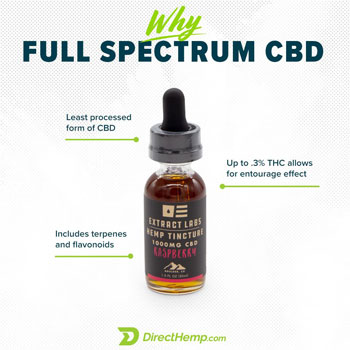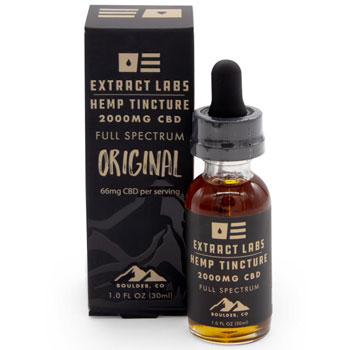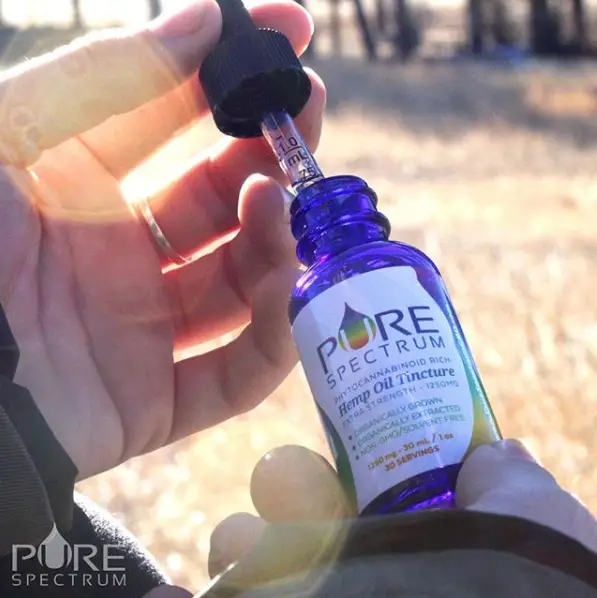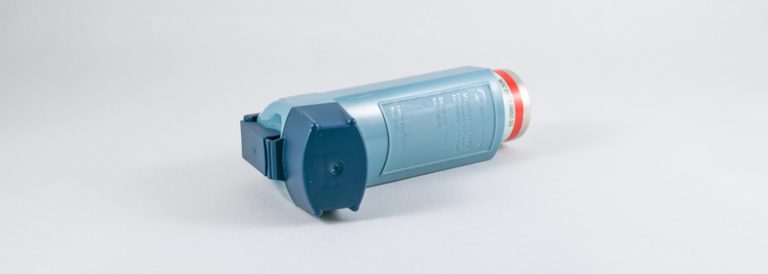Ventolin Abuse Guide: 3 Side Effects & How To Beat It In 2021
Ventolin, or albuterol, abuse is a serious concern for people with asthma. Used improperly, rescue inhaler overuse can cause permanent damage to the lungs and airways and an increase in the symptoms of asthma like wheezing and chest-tightness.
Thankfully, research has shown that changes in lifestyle like diet and exercise, and even supplements like CBD, can have a huge impact on reversing the damage of ventolin abuse and get you breathing better again.
Want to know more about how to use your inhaler less? Keep reading to learn how I did it.
I’ve used a rescue inahler plus preventative medicine since I was a young child (anyone else old enough to remember the prednisone days???).
The only thing worse than the tightness you feel in your chest when you need your puffer? It’s needing your puffer multiple times a day, even waking up at night needing it.
That’s how bad my albuterol abuse was, before I cut my reliance on it.
So if you feel like you use your inhaler too much, then you may be suffering from ventolin abuse, too.
And this guide is here to help.
Ready to dive right in? Jump to:
- 3 Side Effects of Ventolin Abuse
- How To Break the Cycle of Ventolin Abuse
- Extra Resources to Help End Your Ventolin Addiction
- More Reading (and Links)
Traditionally, doctors will prescribe a preventer inhaler such as Flovent to a patient who reports using their ventolin inhaler more than three times a week.
Let that sink in, because three times a week may not seem like a lot to many asthmatics.
In fact, if you’re like I was, you could be using your ventolin up to three times a day, or more.
Using your rescue inhaler so much a classic sign of unmanaged asthma symptoms.
And taking your puffer a lot more than three times a week could be a sign of ventolin abuse.
In my experience, overusing albuterol leads to a viscous cycle of abuse and dependence.
The more I use it, the more likely I am to need it again in the near future.
Ironically, overusing my ventolin inhaler always made my asthma worse.
Thankfully, thanks to these five steps, my albuterol addiction is behind me. But I had to learn about the side effects of ventolin abuse first.
3 Nasty Side Effects of Ventolin Abuse:
1. Throat irritation:

Your albuterol inhaler is rough on the throat.
Yes, it opens up the airways. But it always left me coughing afterwards just the same.
Using ventolin too much can leave you with the equivalent of a smoker’s cough, and all that extra irritation just leads to more inhaler use.
2. More Phlegm:
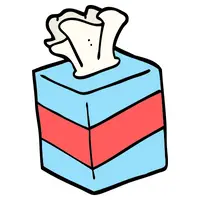
Throat irritation leads to more phlegm production.
And as every asthmatic knows, phlegm-y mucous is what you wind up coughing up after an attack.
In fact for me, this extra mucous combined with a bit of inflammation of the airways was often enough to trigger an attack.
3. Compromised Immunity:

Your body has its own natural mechanisms for expelling excess mucous and relieving inflammation, but if it’s never given the chance to do it, it can lose this ability over time.
When you overuse ventolin, you’re essentially replacing your body’s natural defenses against asthma, increasing your dependency on the inhaler as well as frequency of use.
Note: the nasty side effects of ventolin abuse are all things that can actually make your asthma worse, not better. No thank you.
Breaking the Albuterol Abuse Cycle
When I decided enough was enough, I actually found it pretty easy to reverse the ventolin abuse cycle.
First, I found it crucial to let my minor asthma symptoms pass naturally, either by using breathing techniques like Buteyko, or simply relaxing.
In other words, I simply just started taking my puffer less, even when I wanted to.
Of course that wasn’t always easy or comfortable, but I was committed, and I stuck with it.
Cutting down so drastically on my albuterol use allowed me to reduce my bronchial inflammation and pass mucous without the use of inhaled steroids, which, like we’ve discussed, only encourage more symptoms in the future.
Of course, if your symptoms are severe and/or they do not relent within 5-10 minutes, feel free to use your inhaler. Don’t be a hero, and don’t wind up in the hospital.
But don’t forget that the purpose of the inhaler is not to relieve ALL asthma symptoms.
The purpose of your inhaler is to relieve the symptoms that you cannot relieve naturally – hence why it’s called a “rescue” inhaler.
So have a little faith in yourself, stay calm, and see if the ‘gotta take my puffer’ feeling passes. You might surprise yourself.
And don’t forget that prevention is the mother of all medicine.
Even when you’re feeling symptom free, you still want to take measures to reduce the severity of your next attack.
That means taking care of your overall health, all the time, as much as possible.
Drink plenty of water, get enough sleep and exercise regularly, and avoid over-eating.
This asthma-diet has really helped me, and it’s easy to follow.
Also, try to reduce your stress with meditation, yoga, and, as already mentioned, specialized breathing techniques. This 10 minute breathing exercise video is a good place to start.
If you still find yourself needing your inhaler more than 3 times per week, talk to your doctor about taking a preventer inhaler such as Flovent.
A preventer inhaler will help to reduce symptoms and can help stop ventolin abuse in its tracks.
Finally if you’d like reminders to stay motivated, be sure to join our free asthma-community by joining our mailing list! We send out occasional emails (never spam) with new tips and resources we’re finding to help our asthma now.
Extra Resources To Help End Your Ventolin Addiction
I started this asthma blog because I wanted to help people like me, by sharing info I’ve learned that has helped me go from using my albuterol/ventolin inhaler multiple times a day, to now only needing it a few times a year, mostly when I’m sick.
Here’s some of the tools that gave me the biggest bang for my asthma-fighting buck.
If you found this Ventolin Abuse Guide helpful and you’d like to support our asthma blog, please consider using our Amazon links below. It won’t cost you any extra, and it will help us keep making free guides for our fellow asthmatics!
Breathing Techniques To Reduce Overbreathing
I’ve written a lot about breathing methods on this blog. I now understand that how I breathe, and how much I breathe, has a huge impact on my asthma.
Sounds like a no-brainer, right? Unfortunately in over 30 years of going to the doctor for asthma treatment, not one suggested I explore breathing techniques to get a better handle on my symptoms.
Thankfully, there are lots of books now available to get started. I’ve learned a lot from asthma-expert Patrick McKeown, and I’m sure his latest, The Oxygen Advantage, can really help you too.
At the time of writing this article, it was retailing well under $20 on Amazon – making this a pretty cheap way to greatly help your asthma.
Not A Big Reader?
Not to worry! Patrick has also put out a DVD. This Buteyko Clinic DVD Set comes with a DVD, a CD and his popular Close Your Mouth book.
You can also find lots and lots of free Buteyko videos on Youtube – just be sure you’re careful about who you’re following.
A Simple Way To Lessen Asthma Symptoms At Night (without your inhaler!)
One of the easiest, simplest and cheapest tricks I’ve gotten from Patrick (and other asthma breathing practitioners) also sounds the silliest at first.
If you’re like me, your asthma symptoms are probably worse at night – and waking up at 3am because you need a puff is the worst.
If your asthma is worse at night, it’s probably because you are unconsciously breathing through your mouth.
So how do you beat that? You tape your lips when you go to bed!
I know it sounds weird – go here to find out more information, including how it works and some precautions.
I like to use 3M gentle paper medical tape – I’ve found it to be the most gentle on my skin, while still staying put throughout the night.
You can find this at your local drug store, or buy in bulk and maybe save a few pennies on Amazon. Either way, if you’re like I was, you’re intrigued and think anything so simple is worth a try!
Get Cleaner Air
It’s a no-brainer that is backed up by science: air purifiers can help us manage our asthma symptoms.
I can’t believe it took me so long to finally get an air filter, and I’m so happy I found my Honeywell HPA160 HEPA Tower Allergen Remover (link to Amazon). I noticed a difference in the air quality in my apartment after just a few hours of using this little machine, and I haven’t looked back.
It makes sense that you want the air in your home to be as clean as possible, to make things easier on your lungs. An air filter alone won’t cure your symptoms, but it sure can help.
And if you’re ready to dive in, here’s a great, moderately priced option that’s currently available:
You might need a different filter to match your living space. Be careful because certain types of air purifiers can actually make your asthma symptoms worse. So use my Air Purifiers for Asthma guide to help you learn what works best.
CBD For Asthma: My Secret Weapon
I didn’t know about CBD when I first started weaning myself off my asthma medications, and I wish I had – it would have made things so much easier!
CBD has been proven to help treat many types of asthma by reducing inflammation and relaxing the nervous system.
It’s a natural compound found in hemp that’s been used medicinally for thousands of years to treat many conditions, including asthma. CBD is legally available in all US states without a prescription, as well as Canada and the European Union.
Before taking CBD, I was able to stop taking my puffer … but sometimes, I still kinda wanted it. Now, I don’t crave it at all, and CBD helps with other conditions too. My wife, Emma, takes it to help with mild anxiety and severe insomnia, and she swears by it.
If you’re interested, please learn more about how to use CBD for asthma management here.
Many readers ask me for brand recommendations, because CBD is growing in popularity. I highly recommend buying from a reputable distributor like Direct Hemp, and I’m happy to share that readers of my blog who use the coupon code ‘treatasthma’ can get 10% off their order – making it even easier to try CBD out to see if it works for you.
Use code ‘treatasthma’ for 10% off your entire purchase at Direct Hemp. This code does not expire.
More Reading About Ventolin Abuse
By this point, you can probably tell that I’m pretty passionate about finding natural ways to relieve asthma symptoms.
I know ventolin can be a lifesaver … but it’s also a pain in the butt.
But don’t take my word for it! Here are some articles from the National Institutes of Health (NIH).
- Asthma inhaler misuse and substance abuse: A random survey of secondary school students
(Students who misuse their asthma medicine found to be more likely to smoke, drink, binge drink and do illicit drugs.) - Salbutamol misuse or abuse with fatal outcome: a case-report
(36 year old woman with poorly managed asthma dies from salbutamol overdose.) - Pilot Study of Abuse of Asthma Inhalers by Middle and High School Students
(Study showing using non-prescribed asthma medicine linked to higher drug use in children.) - Salbutamol Abuse is Associated with Ventricular Fibrillation
(Case study of 24 year old woman who attempted suicide with her salbutamol inhaler, which led to the development of supraventricular tachycardia and ventricular fibrillation.) - Repeated use of albuterol inhaler as a potential cause of Takotsubo cardiomyopathy
(Takotsubo cardiomyopathy is a cardiac condition that is now linked to albuterol)
Yikes! It’s enough to make you try to quit ventolin as much as possible too, right?
So here’s some helpful articles, written by moi, that can help you on your ‘stop ventolin abuse’ journey:
- How I Quit Ventolin – 5 Easy Steps
(This is basically my asthma journey – with the specific actions I took to drastically reduce my ventolin use and cut out my preventative inhaler completely.) - How Rowing Helped Me Quit Ventolin
(Exercise is a key component of ending albuterol abuse, but it’s hard when you’ve got embarrassing exercise-induced asthma like I do. Here’s how I solved that problem.) - How To Journal For Asthma Management
(If you’re serious about treating your asthma naturally, then you need to be tracking your symptoms – here’s how.) - Best Tea for Asthma – My Favorites!
(If you’re trying to work your way through mild asthma symptoms without using your puffer, then a cup of tea can help relax you. Here’s my go-to teas for asthma management.)
And if you’ve found this Ventolin Abuse Guide helpful, please join my mailing list …



